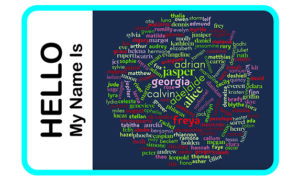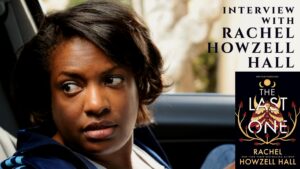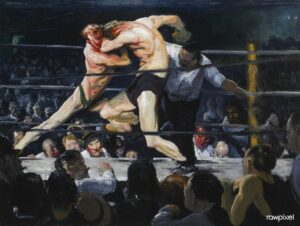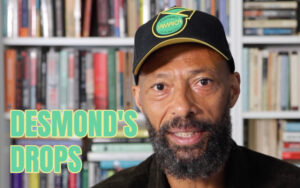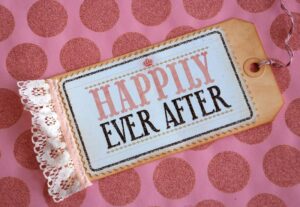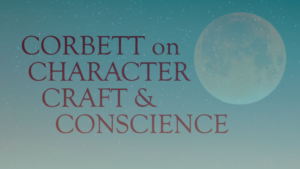Genre
Naming characters is my least favorite part of writing. A character’s name imparts more than just a moniker by which to differentiate actors in a plot. Names are powerful—they provide limits and possibilities to what the character might be or do. For me, the wrong name for a character throws things off in the writing. A character that has not been given the right name misbehaves. Beatrice would not speak the same way that Susan would. Ernest would choose different clothes from Roderick. Until I find the right name for a character, they don’t willingly occupy their role within the larger story.
While clearly I tend to overthink things, these expectations are extensively influenced by stereotypes and preconceptions. The connections we make when we hear someone’s name are as instantaneous, as deep-rooted, and as difficult to shift as first impressions. Getting them right is worth a little extra time and consideration.
I’m not going to tell you how to choose or derive a name—there are numbers of name generator tools on-line. I’m going to try to highlight the complexity and variety of ways in which a name can influence first impressions to help provide you with ways to assess what name best fits your character and your story.
The Power of Names:
Names create expectations, not just of the person’s individual characteristics, but also of their background:
Read More
I’m guessing, given Tuesday’s election, most of us have been living in a world of, shall we say, heightened reality the past few days (if not weeks, or months). So, with no desire to diminish the importance or impact of that reality, allow me to offer a bit of a diversion, one I’ve had planned for some time: here’s an interview with Rachel Howzell Hall, known for her bestselling thrillers, about her turn to romantic fantasy with her latest book.
Rachel has been on a bit of a tear lately: her most recent previous novel, We Lie Here, was both a bestseller and nominated for a Los Angeles Times Book Prize. Before that she had three bestsellers in a row, What Fire Brings, What Never Happened, and These Toxic Things (also nominated for the Anthony Award, the Strand Critics Award, and the Los Angeles Times Book Award), with And Now She’s Gone garnering nominations for the Lefty, Barry, Shamus, and Anthony Awards.
With so much success in the thriller category, why jump ship and climb aboard an entirely different genre? I asked her that question (see below).
Meanwhile, The Last One, which comes out December 3, has garnered significant pre-publication praise:
The Last One can be pre-ordered now at Bookshop.Org, Amazon, B&N, Google Books, Kobo, Apple Books, or at your favorite local bookstore.
How did your agent (and/or editor/publisher) respond when you proposed a book so different from your past work?
Actually, it was my agent Jill Marsal who first reached out with the possibility of collaborating with publisher Liz Pelletier. I was thrilled at the opportunity—Liz is a genius. She was preparing to launch a new imprint from Entangled called Red Tower, filled with high-concept ideas she wanted to bring to life. I was honored to be one of the writers she thought would be a good fit for the project.
I get the feeling that this is a book you’ve been wanting to write for some time—have I got that right? If so, what kept you from getting to it sooner? How long did it take to imagine it, plot it out, and then get it down on the page?
I didn’t realize I wanted to write this book until I actually started. I was pretty intimidated by the idea of tackling not just one, but two new genres. I had never written a romance, and I had never written a fantasy. However, I soon discovered that I still had a lot to say—things I’d expressed before in mystery and crime—but now I had the opportunity to explore them in a world I could entirely create. A world without rules, until I made them.
I was offered the opportunity in July 2022 and began writing. I […]
Read More
In 2016, when the film Manchester by the Sea was released, I went to see it with a friend. The movie, directed by Kenneth Lonergan, tells the story of a reclusive, down-and-out janitor, played by Casey Affleck, who has lost his children in a house fire caused by his own negligence. Depressed and antisocial, he’s forced back into the land of the living after the sudden death of his brother, when he becomes the legal guardian of his teenage nephew.
Although the movie was sad, it spoke volumes about our ability as individuals to overcome almost unbearable circumstances, grounding and humanizing the sort of horrendous catastrophe that is all too often politicized or used to boost ratings by the mainstream media.
As my friend and I were walking out to the car after the movie, my friend said, “If I’d known how depressing that was going to be, I would have stayed home.”
I didn’t mention it at the time, but I loved Manchester by the Sea. I wasn’t the only one. The film was nominated for six Academy Awards and won two: Best Actor and Best Screen Play.
In Poetics, Aristotle’s famous essay on Greek drama, he wrote that the purpose of tragedy is to “arouse sensations of pity and fear, and to purge [the audience] of these emotions so that they leave the theater feeling cleansed and uplifted, with a heightened understanding of the ways of gods and men.”
Anyone who enjoys listening to the blues knows how this works. It’s also the reason that some of the most revered and beloved works of literature in the English language are tragedies.
Because they offer insight into the human condition, often exhibit circumstances that foster societal plight, and promote critical thinking, tragedies were once standard curriculum in high school and college English classes.
In the late 1980s, when I was in high school, we read Shakespeare’s Othello, Hamlet, Macbeth, and Julius Caesar.
As freshmen, we cringed and wrung our hands after learning the fate of Thomas Hardy’s Tess, the protagonist of his masterwork, Tess of the d’Urbervilles. Poor Tess never had much of a chance.
My sophomore year, we spent a week discussing the suicide of Willy Loman, the sad-sack anti-hero of Arthur Miller’s Death of a Salesman.
I’ll never be able to forget Melville’s luckless Billy Bud, hanged by his neck from the yardarm for a crime he didn’t commit, or the murder of Jay Gatsby, F. Scott Fitzgerald’s lovesick millionaire, shot to death in his own swimming pool.
These works of literature and others like them can be tough to get through. But, in my opinion at least, the cultural, ethical, and spiritual enlightenment tragedies offer outweighs any emotional burden they might impart.
And yet, sometime over the last thirty or so years, tragedies fell out of favor. Novels like Of Mice and Men and The Scarlet Letter make up a large percentage of the books that have been banned in certain parts of the country. Perhaps this is a result of the general backlash against anything even remotely intellectual that’s run rampant in the U.S. for the past few decades, […]
Read MoreHere’s something I didn’t realize when I started writing: Most people dislike the Chosen One trope. Not everyone dislikes it, of course. And I’d say some who claim to dislike it are generalizing. I mean, how would we have ended up with so many hugely popular Chosen One stories and franchises if everyone hated them as much as they profess? And I do mean huge—stuff like: Star Wars, Harry Potter, Percy Jackson, The Matix, Dune, The Wheel of Time, and—of course—The Lord of the Rings (didn’t think I was going to neglect to mention that one, did you?).
Generalizations aside, the consensus seems to be that the Chosen One is worn out, tired, passé. In my genre (SFF) it’s become the trope most likely to induce eye-rolls or groans, or even a “hard pass” (don’t ask how I know).
So what did I do? Went ahead and wrote six manuscripts that prominently feature this often disdained trope, of course. I may have been clueless about folks’ feelings in regard to the Chosen One, but luckily, I was also clueless about what I was trying to accomplish with it. Turns out, my explorations have been enlightening. For me, anyway. Hopefully for some readers, too. I really don’t have any regrets, and I still consider the trope a viable tool.
As with all of the elements of storytelling, I believe its viability depends on how it’s used. Shall we take a closer look?
Why the Scorn?
It’s not difficult to guess why folks dislike the trope, but I did some googling anyway. Seems the most frequently cited reason is its predictability. Followed closely by how the circumstance might lead to a lack of obstacles for the character. It’s obviously very old—in books, going back to the earliest versions of King Arthur, at least—which can lead to feelings of overfamiliarity.
Then there’s the Chosen One characters themselves. Being chosen can tend to result in Mary Sues or Gary Stus—characters who are too perfect, or annoyingly “special.” If the Chosen One is “destined,” they can be stripped of their freewill. Even the type of obstacles Chosen Ones face can be tedious, especially when the chosen character is ill-equipped or misinformed. The very presence of an enhancement that sets Chosen Ones apart can lead to instances of Deus Ex Machina.
All of these complaints stem from a story pattern that’s formulaic. I’d also argue that all of them are easily avoidable.
Choice? What Choice?
I didn’t fully appreciate it then, but on the day I first started typing the pages that eventually developed into my epic fantasy series, I had already chosen to utilize the Chosen One trope. In my earliest recollections of the lead characters, they were—in some fashion—chosen to lead. In other words, although I didn’t consciously seek to write to a trope, I did indeed choose characters who were chosen.
That was twenty years ago, and I’m not sure the eye-rolling and groaning over Chosen Ones had become quite so universal yet. It’s true that I was greatly inspired by The Lord of the Rings, and that I also consider Dune to be a foundational book. Plus, I have been a Star Wars geek since standing in line for the first theater runs of the first […]
Read MoreAs some of you may already know, in addition to being a highly sought-after shirtless model for romance novel covers, I am also a longtime professional musician, having earned my first money for playing drums at the ripe old age of 14. In fact, music was my fulltime profession until my late 30s. And I didn’t start seriously writing fiction (inasmuch as anything I write could be considered “serious”) until I turned 40. (So you might say that as a writer, I was a 40-year-old virgin. But I digress…)
Coming into a new-to-me art form with a lengthy background in another, I’ve been repeatedly struck by how many parallels I’ve encountered between the two creative paths. It has also been interesting to note the very different experience of learning one art form as a child, and learning another as an adult (inasmuch as a person like me could ever be considered an “adult”).
But I’ll leave the exploration of the whole young-versus-old-artist rabbit hole for some other day. Today, I want to explore five similarities I’ve found in pursuing two art forms – writing and music – at the professional level. I’ll start with the one I think is most important:
1. It’s a business.
Thus far I’ve been calling them art forms, but when you start actively seeking a paying audience for your work – whether written or musical – you quickly become aware that you are dealing with a business, which brings with it numerous rules, obstacles and rites of passage, many of which are not clearly stated or even openly acknowledged. Yeah, it’s fun like that. Trust me: You’re gonna want to wear a helmet.
In each case, because it’s a business, many decisions that will affect your success are A) based on money, and B) out of your hands.
As a musician, this could come down to who is willing to hire you, or to pay to see you perform, or to publish your music (an area that used to be where the money was in songwriting), or to finance your recording and/or tour, or to buy your recordings. Bottom line: It’s about who will spend their money on this thing you chose to do. As the artist, all you can do is make whatever product or service you’re offering as appealing – and as competitive in terms of financial value – as possible.
Writers are in a similar position. Whether you’re pursuing the traditional publishing route, or self-publishing, or trying to get a piece of your dramatic work produced either on stage or screen, somebody else has to decide that what you’re doing (or promising to do) is worth their money.
In both cases, as an artist, you are free to express yourself in any way you see fit. But as an artist who wants to be paid for that art, it quickly becomes obvious that some pathways lead a bit more directly to potential revenue generation than others. Hence my next observation:
2. Genre matters.
For example, a thrilling 70,000-word whodunit with a strong, confident protagonist stands a better chance of selling some copies than a 600-page second-person diatribe exploring the modernist paradigm of discourse that forces the reader to choose between subcapitalist situationism and the dialectic paradigm of consensus. (Incidentally, I have no […]
Read More
“The first rule of Fight Club is: you do not talk about Fight Club.”
Fight Club, the book and the movie, comes at you like a right hook. In my experience, you love it or you hate it. But unless you’re tragically hipster or a Gen Z nihilist, the last thing you are is ambivalent.
Which brings us to the topic of today’s post.
Welcome to the Suck.
I’ve been in the publishing industry for nearly 25 years. It’s always been the Wild West. Lately, though, it’s been looking less like a Western and more like a post-apocalyptic dystopia. We went from High Noon to The Hunger Games in six seconds flat.
In this landscape, your story is either a Sherman tank, or a ghost.
“One size fits all” fits no one.
I can’t tell you how many writers I’ve talked to who say their story “could appeal to everyone… anyone from age ten to seventy, any race, any gender, any walk of life!”
No, it really, really doesn’t.
Because nothing appeals to everyone.
Hell, I know people who don’t like pizza, and if that’s not proof there is no universally appealing thing on earth, I don’t know what is.
More importantly, appealing to everyone should never be your goal when it comes to writing, especially now.
“Universally appealing” generally means average, safe, standard.
That’s DMV beige. That’s unseasoned boiled chicken breast.
That’s ghost territory.
Turning it up to eleven.
It started with the rise of the internet, when a plethora of images, information, and interaction were suddenly, literally at your fingertips. Ironically, in a time where we have the largest buffet of brain candy in the world, people are starving for all the choices.
(If you’ve ever spent an hour perusing Netflix titles while choosing nothing, you know what I mean.)
As a result, it takes something truly vibrant, amplified, and dare I say polarizing to connect with the right readers… the ones who will not only love your work, but spread it like an underground rebellion through their various whisper networks.
In this environment, “meh” is the enemy. Ideally, you want people to either love it or hate it, but by God, they have strong feelings either way.
That’s what we’re looking for. Strong feelings.
But how do you do that?
Repeat with reader experience. Think about what draws readers to your genre. For example, in mystery, they love the puzzle, the challenge. They want the clues, the twists, the red herrings. They want to feel smart, but challenged. They want to know they could solve the murder – but still be pleasantly surprised at a fair, believable, yet unexpected finale.
Add depth to […] Read More
Welcome to a new edition of Desmond’s Drops!
This month, enjoy three drops focused on one topic–Blake Snyder’s SAVE THE CAT film genres and the three tenets associated with each of them, beginning with:
Though Blake came to these genres and tenets through a study of film, they’ve helped countless novelists to create more well-rounded stories–including Desmond himself. Blake’s story genres and what he’s identified as unique variables for each of them can help a storyteller realize essential missing pieces. (We can’t recommend Blake’s book, Save the Cat, highly enough.)
Email subscribers, please click directly to staging-writerunboxed.kinsta.cloud to view, or visit all of Demond’s Drops on YouTube.
Look for more of Desmond’s Drops in March!
Have your own bit of wisdom to share? Drop it in comments.
Read More
My second novel, which was released last March, is a coming-of-age story. The book’s protagonist is a sixteen-year-old boy. A few months before the publication date, I had a conversation with my publisher about whether the book should be marketed as a young adult novel or as adult literary fiction.
“It really could be either,” my publisher said. “I think there’s something in it for everyone.”
After weighing the pros and cons of each, we decided to go with adult literary fiction, partly because the novel contains mature content that some parents might find unsuitable for teenagers, and also because we felt that the book would have an opportunity to reach a wider audience as an adult novel.
I was happy with this decision until the book came out and one of its early readers, who also happened to be my father, sent me an email. “It’s a good book, but I don’t think it’s for the over-seventy crowd,” he wrote. “It’s hard to identify with a teenager at my age.” (For the record, he also gave the book a four on Goodreads 😐.)
I was considering asking my publisher if we could revise the book’s metadata when positive reviews started to come in, all of them from adult readers.
“I’m not a teenager,” one woman told me, “but I could really relate to the book’s main character. I’ve had some similar struggles in my life recently. I was rooting for him to succeed the whole time.”
By definition, coming-of-age stories portray a time in a character’s life when they’re undergoing a metamorphosis—in the process of becoming a better, more evolved version of themselves. For most of us, this development takes place when we’re in our late teens or early twenties. But life, especially over the past few years, doesn’t always stick to the rules. Big changes can take place in anyone’s life at any time whether we want them to or not.
If you asked someone to give you a list of their favorite books, it’s likely that at least one coming-of-age story would make the cut. Classic novels like A Catcher in the Rye, The Chocolate War, and The Outsiders occupy an eternal place in people’s hearts because we all know what it’s like when the phonies won’t get off our backs and the rich kids cheat to win.
One of my favorite novels is Peace Like a River by Leif Enger. Set in 1950s Minnesota, it’s the coming-of-age story of eleven-year-old Reuben Lands. The story is full of adventure, tragedy, poverty, hope, love, and miracles that feel true-to-life. I’ve read it a dozen times. Every time I read it, I’m reminded that it’s not just our circumstances that define our characters but the ways in which we choose to handle them. I’m also reminded that, if we’re open to it, it’s possible to grow and change as a person no matter our age.
Although it’s been widely read in high school English classes since it was published, Peace Like A River was intended for an adult audience.
Coming-of-age stories are universal. They occupy their own special niche in the world of storytelling. By showing us […]
Read More
My mother loved cozy romance novels. Stacks of them were piled up around her house, and it was rare to find her at home without one by her side. Not being familiar with the genre myself, I asked her once why she liked these books so much. She said, “I love reading them because no matter what happens in the story, I know there will always be a happy ending.”
This got me thinking about readers’ expectations and authors’ obligations to fulfill them. The storylines in most genre fiction tend to follow trajectories that provide fans with a particular experience. In the case of cozy romance novels, this often means feelings of reassurance and contentment, especially when it comes to their endings.
But what about other types of fiction? What is the best way for writers to strike a balance between telling a story that’s meaningful to them that will also be meaningful to readers and give them sense of satisfaction at the story’s conclusion?
I think part of the answer might lie in our collective definition of what a “happy” ending is.
In my experience as a reader and as a novelist, an ending that feels satisfying and positive doesn’t always have to be one where everyone gets married and rides off into the sunset. For me, the most important thing is that a story ends with a sense of hopefulness.
If at the end of a novel a character has grown as a person and has learned something valuable as a result of their experiences, I almost always feel that reading it was worthwhile. This is especially true if I can relate to the character and his or her journey in a personal way.
One of my favorite novels is Charles Dickens’ A Tale of Two Cities. While most people wouldn’t consider the ending of this book to be happy (one of the main characters gets beheaded by the Guillotine), it’s satisfying and hopeful in that it depicts human nature at its most selfless and noble during one of the bloodiest eras in Europe’s history, the Reign of Terror that led up to the French Revolution.
In fact, the stories that have held the most meaning for me have often been those that delve into the darkest places, that force their characters (and their readers) to take a hard look at realities they’d rather ignore. Margaret Atwood’s A Handmaid’s Tale comes to mind as does Paul Harding’s Enon and Anthony Doerr’s All the Light We Cannot See.
One thing these books have in common is the feeling of hope they leave readers with at their conclusions. In the midst of the worst imaginable circumstances, the strength and resilience of the human spirt manages to prevail. These books and others like them are beacons that can light our way forward during the worst of times. And I believe that feeling hopeful, that there is something better just over the horizon if we can manage to keep going, is what human beings need most, especially in the unsettled times in which we’re living.
Of course, all of this is not to say that a good old-fashioned happy ending isn’t sometimes […]
Read More
There’s a lot to be said for and against prologues, as WU contributor Dave King has pointed out in two excellent posts recently. But what about epilogues? Certainly not all novels have them. Certainly not all novels need them. And like prologues they can have a bit of a mixed reputation. But used judiciously, they can be useful narrative tools, enabling the ‘what happened next’ curiosity of the reader to glimpse where the characters will be in the future. They can feel satisfying to the reader. But badly done, they can feel like something just tacked on for the sake of it: worse still, they can feel like they jolt you out of the story-world you have just been immersed in, tying up too many things that perhaps you might have preferred, as a reader, to simply imagine.
Traditional and classic literature frequently uses both epilogues and prologues: Shakespeare, for example, has both in many of his plays. Like his prologues, his epilogues are short and concise. They serve to remind you are leaving behind the world of the play but can now reflect on the sad or happy fate of the characters. Fairy tales meanwhile have a minimalist version of epilogue, briskly informing you that the heroes of the tale ‘lived happily ever after’, occasionally with a rider that bad characters meet a sticky end 😊
Epilogues in novels, however, rarely are as short and brisk! Unlike prologues, which are mostly found in speculative fiction and crime fiction, occasionally in YA but very rarely in children’s fiction, epilogues can be found sprinkled across most genres, including children’s fiction. A famous example of that is in the last Harry Potter book, Harry Potter and the Deathly Hallows, where JK Rowling took her characters far into the future to show them to readers as adults. As well as carrying the characters further, the epilogue served to indicate firmly to readers that the saga was over, and there wouldn’t be another book featuring the adventures of Harry, Hermione, Ron and the rest of the gang.
I’ve used epilogues in several of my own books. Each time, it was for a very specific purpose: for example, in my YA speculative fiction work, The Ghost Squad (2021), which also has a prologue, I used the epilogue to allow readers to see my hunted characters in a space where they might be safe-at least for a while. I’d been in two minds about writing a sequel: so I wrote the epilogue to be both satisfying in itself, and to provide a possible hook, should I decide to keep going into another book. In the end I decided not to write the sequel; but the epilogue still worked, because I hadn’t ended it on a cliffhanger. It gave a glimpse into the future world of the characters, without having to pursue it. With another recent novel, an adult one called A Hundred Words for Butterfly (produced first as an audio novel), an epilogue, set a week or so after the last scene in the last chapter, worked well, giving me the opportunity of both offering a glimpse into the future, but also clearing up something […]
Read MoreRecently I had the good fortune to listen to traditional live music at a bar in Dublin, Ireland. The fiddlers were in fine form and the whole bar was tapping along to the beat, myself included, although I didn’t recognize a single song being played. But then the leader of the band struck up a tune I was sure I knew, even though I couldn’t quite put my finger on what it was. And suddenly and all at once, the way illumination often strikes, it came into focus — the band was playing Someone’s in the Kitchen with Dinah.
Positive I was going crazy, I glanced around for confirmation. The older gentleman next to me leaned in. “From Ireland to Appalachia and back again,” he confirmed.
This happened time and again on my trip. A street busker’s howling harmonica opening, twisty and dark, turned into a gorgeous rendition of Valerie. Rhythmic tapping on a guitar case opened a moody version of If I Go, I’m Goin. Everywhere I turned, it seemed, the Irish were taking my favorite songs and making them their own. And each time, the transformation hooked me viscerally with recognition and delight.
I feel the same way, it turns out, about story retellings. There’s something inexplicably captivating about diving into a new work and recognizing an old friend beneath its surface. And clearly I’m not the only one who feels that way: Witness the success of stories like Madeline Miller’s Circe and Song of Achilles, Naomi Novik’s refreshed Rumpelstiltskin in Spinning Silver, and Barbara Kingsolver’s Demon Copperhead, a retelling of David Copperfield.
I’ve done a lot of thinking about retellings, in part because my latest book Darling Girl is one. For what it’s worth, here are my thoughts on what to keep in mind if you’re attempting this literary feat.
Some pros and cons of doing a retelling:
Depending on the story, a retelling may be considered ‘higher concept’ which can make it easier for marketing teams to get a hook into how to position the story. And news of the book can spread easily through word of mouth. The flip side of that, of course, is that readers may not take kindly to a novel that messes with a beloved tale.
So it’s important to understand how a retelling can pull a reader in, and why.
Read More
In my workshops for aspiring writers, I am often asked how best to categorize a manuscript when submitting it to an agent or publisher. As I’m mainly a writer of fantasy, this question usually comes from fledgling writers of speculative fiction. Where does their work fit into the various sub-genres of fantasy, or is it actually science fiction? If there’s a love story, maybe it’s romantic fantasy, fantasy-romance, paranormal romance? Fantasy comes in many varieties. We have epic/high fantasy (think Tolkien), fairytale fantasy, low fantasy, urban fantasy. Then there are sword and sorcery, grimdark, and magic realism. And don’t forget cosy fantasy, a sub-genre I hadn’t heard of until a couple of weeks ago. I’ll come back to that later. A similar range of variants exists in other kinds of genre fiction, such as romance, crime and mystery.
When this comes up in a workshop, I usually say, forget this for now. First get the manuscript all set for submission. That means not only finished, but polished and edited to the very best standard the writer can achieve. I explain about the value of critique partners or writing groups, the need to seek feedback from someone with the appropriate expertise, the value of beta readers and so on. A writer who reads widely is less likely to ask that question about sub-genre – they will already have a fair idea of where their work fits in. Others may need to think it through, in particular to be clear about the difference between science fiction and fantasy. The generally accepted definitions are that SF contains elements that do not and cannot exist in the world of today, but that might exist in the future, eg human contact with life elsewhere in the universe, where fantasy contains elements that do not and could not exist in our world now or in the future eg magic, supernatural beings (though that definition is crying out to be challenged.) Just to confuse the issue, it is possible for a story to be a blend of science fiction and fantasy. Steampunk, with its combination of magic and technology, has the potential to be both at once. Once the manuscript is as perfect as it can be, the writer does need to decide how they’ll describe it in their cover letter to the agent/publisher. I remind them that if they’re lucky enough to have someone read it, that person will first be looking for outstanding storytelling and originality, whatever the genre or sub-genre.
Genre categories can be misleading. They don’t mean the same thing to everyone. What led me to write this blog post was an invitation to participate in a panel about Cosy Fantasy. I was startled, to say the least. I had never thought of my books as in any way cosy. To me the term suggested the fantasy equivalent of Agatha Christie’s Miss Marple series, something set in a quaint English village or equivalent, with a cast of (mostly) loveable or amusing characters and a story the reader can breeze through without being too troubled. As it happened, I couldn’t do the panel in question because of time zone problems. I asked why they would put me on a cosy fantasy panel when I don’t write […]
Read More
